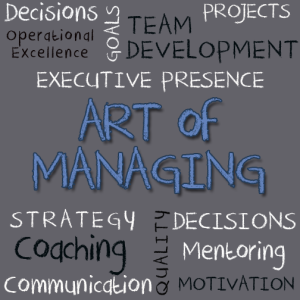 With few exceptions that I’ve encountered, most senior leaders lose sleep over how fast their organizations and employees are moving. Their minds and mantras are: faster to change, faster to improve, faster to add new capabilities, faster to explore and develop competence in new markets and with new customer groups.
With few exceptions that I’ve encountered, most senior leaders lose sleep over how fast their organizations and employees are moving. Their minds and mantras are: faster to change, faster to improve, faster to add new capabilities, faster to explore and develop competence in new markets and with new customer groups.
Given the nature of business in this world today…exponential change, time compression and a seriously heightened risk of disruption in many industries and sectors, perhaps the battle cry for more speed from the top is understandable.
However, at the same time senior leaders are looking for ways for their firms and teams to move faster, most employee groups and their managers are bogged down slogging through the reality of getting stuff done. Their focus is on daily performance and often, they are struggling with too many projects chasing too few people, less than ideal staffing levels overall and dissonance around priorities.
A lack of visibility into strategy is frosting on the performance cake for many of these managers who are being stretched thin between the need for speed from the top and the reality of needing to do too much with too little from below.
There is indeed an organizational breaking point in these situations, and the impact, if left unchecked, will be felt in sub-optimal performance, an increase in mistakes and execution misfires and eventually, a serious decline in morale and the loss of key employees. This is a situation that managers from the front-line to top-levels must work together to fix.
3 Ideas to Help Improve the Balance Between Speed AND Performance:
1. Unclog the Communication Channels Between Management Layers. There’s a tendency of senior managers to assume things are fine as they push new initiatives or encourage change and promote speed, particularly when there’s no push-back. There’s also a tendency of a firm’s front-line and middle managers to nod their heads yes to the “new, more and faster” and then walk away wondering just how they are going to deal with something else on their plates.
Both parties own this problem and the cure. If channels are clogged and performance is in jeopardy, it’s incumbent upon both groups to sit down and create a clear picture of priorities, strategies and to zero in on the tasks and added resources most necessary for success. Learning to push-back at each other is an important part of healthy dialog between front-line and mid-level managers and their firm’s senior leaders. Good senior leaders should welcome this robust dialog.
 2. Start Saying “No.” In isolation, almost every idea proposed by a motivated manager or good team seems interesting and viable. While not wanting to stifle creativity, management teams must learn to segregate the must-do’s from the nice-to-do’s. Saying “no” is a critical part of every successful firm’s journey.
2. Start Saying “No.” In isolation, almost every idea proposed by a motivated manager or good team seems interesting and viable. While not wanting to stifle creativity, management teams must learn to segregate the must-do’s from the nice-to-do’s. Saying “no” is a critical part of every successful firm’s journey.
3. Quit Adding New without Investing. While fairly intuitive, it never ceases to amaze me how frequently I find teams who take on new initiatives (perhaps because the initiatives are noble and good and aggressive and needed) without making the commensurate level of investment in resources, training and equipment. Cut it out!
Consider the whole-investment needed to be successful with any material new initiative and factor it into the investment process. If it’s worth doing, it’s worth doing it right.
The Bottom-Line for Now:
The need for speed AND performance collide at that point in every organization where and teams and individuals strive to get the right things done. As managers, we owe it to our team members and stakeholders to be aggressive and realistic about what we take on and how we do it. Most teams are giving it all they can and the only way to get to new or to go faster is to focus, know where to say no and to back new initiatives with the needed investments. Anything less is a formula for stress, strife and strain.
—
More Professional Development Reads from Art Petty:
Don’t miss the next Leadership Caffeine-Newsletter! Register here
For more ideas on professional development-one sound bite at a time, check out Art’s latest book: Leadership Caffeine-Ideas to Energize Your Professional Development.
New to leading or responsible for first time leader’s on your team? Subscribe to Art’s New Leader’s e-News.
 An ideal book for anyone starting out in leadership: Practical Lessons in Leadership by Art Petty and Rich Petro.
An ideal book for anyone starting out in leadership: Practical Lessons in Leadership by Art Petty and Rich Petro.
